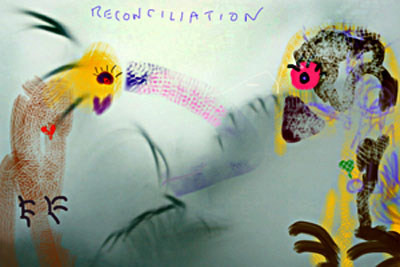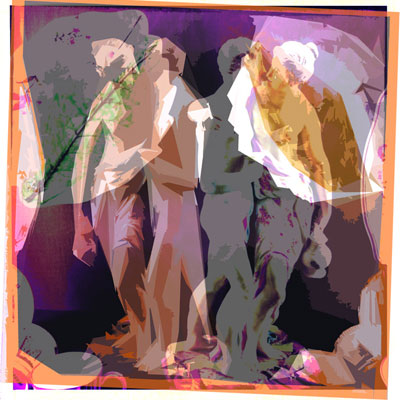RECONCILIATION & FORGIVENESS
Reconciliation means to meet or join a council or group again (re-conciliare in Latin). It's what parties need to do at some level after violence, hurt or harm. Even better, reconciliation should take place during conflict escalation i.e. before violence is employed.Reconciliation requires at least two parties and should be - but seldom is - an integral part of conflict-resolution. It can be encouraged and facilitated, built into peace processes, but it cannot be forced. It has to happen when the parties feel the time is ripe and they can do it.
Forgiveness is a little different in the sense that it takes, in principle, only one person to do it. We forgive because we want to free ourselves from the burden of permanent hatred, bitterness and the wish for revenge because we want to go on with our lives.

Reconciliation and forgiveness mean to remember, not to forget. Both are pro-peace concepts because they imply that participants say goodbye to future revenge and the resumption of the conflict.
These are deeply human processes. Oftentimes, they can be very difficult to achieve. International organizations know how to give loans and rebuild roads after the war. On the whole, they know neither how to re-build souls or neighbourhoods, nor how to encourage even the first small steps in such a process.
TFF has been involved in the field of reconciliation since its work on the ground in former Yugoslavia in 1991. We saw how parties treated each other in ways that would make reconciliation and forgiveness extremely difficult.
We also saw an international so-called 'community' totally ignoring these complex human dynamics while focusing instead on activities that could be provided by force, on political deals and on money or on mechanical, physical re-building.
We were shocked to find that reconciliation and forgiveness had been almost completely ignored in the world of research - while thousands of scholars had focused on understanding why human beings take to violence.
What we know about forgiveness and reconciliation today is based on practical experience from the killing fields where TFF has been engaged, including Burundi.
We have come to the conclusion that no conflict can be resolved unless human beings are placed at the centre of conflict-management and mediation and treated as exactly that: human beings.



 Get Free Email Updates
Get Free Email Updates Support this site
Support this site Feedback
Feedback About this website
About this website